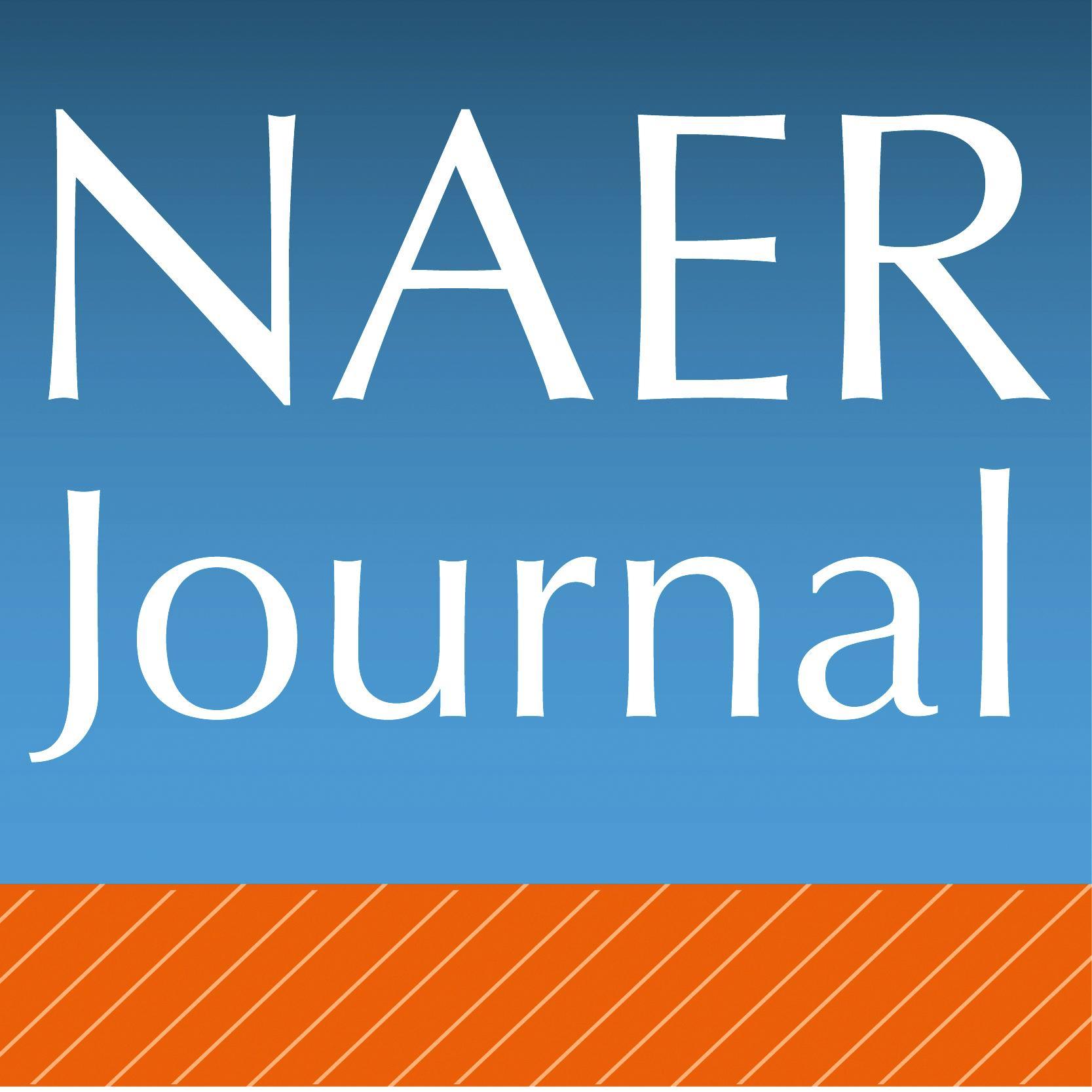El mobile learning en el aprendizaje del inglés en la Educación Superior: una revisión sistemática
Resumen
Aprender inglés como lengua extranjera es esencial para desenvolverse en una sociedad globalizada. Además, los avances tecnológicos y la introducción de las TIC en el campo de la educación durante las últimas décadas han permitido mejorar el proceso de enseñanza-aprendizaje gracias a creación de nuevas herramientas y modalidades de enseñanza, como por ejemplo el aprendizaje móvil (mobile learning).
Para comprobar si el mobile learning favorece el aprendizaje del inglés se llevó a cabo una revisión sistemática de corte cualitativo. Durante la búsqueda de estudios, se recuperaron 38 que cumplieron los criterios de elegibilidad y se clasificaron de acuerdo al objeto de estudio. En este trabajo se concluye que el mobile learning favorece el desarrollo de las competencias comunicativas (comprensión oral, producción oral, comprensión escrita y producción escrita) para aprender inglés como lengua extranjera en enseñanzas superiores. Del mismo modo, también se evidencian resultados positivos para el desarrollo de las competencias lingüísticas de vocabulario y pronunciación para aprender inglés en Educación Superior. Sin embargo, se encuentra una mayor disparidad de resultados en relación al aprendizaje de la gramática. Por último, se señala un cambio de tendencia de las competencias analizadas en las últimas dos décadas en relación al aprendizaje del inglés a través del mobile learning puesto que la producción oral ha pasado de ser la tercera competencia comunicativa a ser la competencia más estudiada, seguida del aprendizaje de vocabulario.
Descargas
-
Resumen1387
-
PDF1032
-
PDF Kindle1032
Citas
Afacan Adanır, G. y Muhametjanova, G. (2021). University students’ acceptance of mobile learning: A comparative study in Turkey and Kyrgyzstan. Education Information Technologies, 26, 6163–6181. https://doi.org/10.1007/s10639-021-10620-1
Agbatogun, A. O. (2013). Interactive digital technologies’ use in southwest Nigerian universities. Educational Technology Research and Development, 61(2), 333–357.
Alhebshi, A. A. y Gamlo, N. (2022). The Effects of Mobile Game-Based Learning on Saudi EFL Foundation Year Students’ Vocabulary Acquisition. Arab World English Journal, 13(1), 408-425. https://dx.doi.org/10.24093/awej/vol13no1.27
Al-Jarf, R. (2021a). Colaborativa mobile eBook reading for struggling EFL college readers. Journal of Research & Method in Education, 11(6), 32-42. https://doi.org/10.9790/7388-1106023242
Al-Jarf, R. (2021b). Mobile audiobooks, listening comprehension and EFL college students. International Journal of Research - GRANTHAALAYAH, 9(4), 410-423. https://doi.org/10.29121/granthaalayah.v9.i4.2021.3868
Al-Shehab, M. (2020). The role of mobile-assisted language learning (MALL) in engancing the writing skills of intermediate IEP students: expectations vs reality. Language teaching research quarterly, 20, 1-18. https://doi.org/10.32038/ltrq.2020.20.01
Arain, A. A., Hussain, Z., Rizvi, W. H. y Vighio, M. S. (2018). An analysis of the influence of a mobile learning application on the learning outcomes of higher education students. Universal Access in the Information Society, 17, 325–334. https://doi.org/10.1007/s10209-017-0551-y
Ataeifar, F., Sadighi, F., Bagheri, M. S. y Behjat, F. (2019). Iranian female students’ perceptions of the impact of mobile-assisted instruction on their English speaking skill. Cogent Education, 6(1), https://doi.org/10.1080/2331186X.2019.1662594
Aznar-Díaz, I., Cáceres-Reche, M. P. y Romero-Rodríguez, J. M. (2018a). Quality indicators to evaluate good teaching practices of mobile learning in higher education. Education in the Knowledge Society, 19(3), 52–68. https://doi.org/10.14201/eks20181935368
Aznar-Díaz, I., Cáceres-Reche, M. P. y Romero-Rodríguez, J. M. (2018b). Effect of the mobile learning methodology in university education: meta-analysis of the research published in WOS and scopus. RISTI. Revista Ibérica de Sistemas y Tecnologías de la Información, 30, 1–16. https://doi.org/10.17013/risti.30.1–16
Aznar-Díaz, I., Hinojo-Lucena, F. F., Cáceres-Reche, M. P. y Romero-Rodríguez, J. M. (2020). Analysis of the determining factors of good teaching practices of mobile learning at the Spanish University. An explanatory model. Computers & Education, 159. https://doi.org/10.1016/j.compedu.2020.104007
Berry, D. M. (2021). Level up your pronunciation: impact of a mobile game. MEXTESOL Journal, 45(1), 1-12.
Burston, J. (2014). The reality of MALL: Still on the fringes. CALICO Journal, 31(1), 103–125. https://bit.ly/3ECEN8J
Byram, M. (2008). Teaching and learning language and culture. Multilingual Matters.
Canale, M. y Swain, M. (1980). Theoretical bases of communicative approaches to second language teaching and testing. Applied Linguistics Journal, 1(1), 1-47.
Chang, C. y Lin, H-C. K. (2019). Effects of a mobile-based peer assessment approach on enhancing language-learners’ oral proficiency. Innovations in Education and Teaching International, 57(6), 1-12. https://doi.org/10.1080/14703297.2019.1612264
Chaya, P. y Inpin, B. (2020). Effects of integrating movie-based Mobile learning instruction for enhancing Thai university students’ speaking skills and intercultural communicative competence. English Language Teaching, 13(7), 27-45. https://doi.org/10.5539/elt.v13n7p27
Consejo de la Unión Europea. (2018). Recomendación del Consejo de 22 de mayo de 2018 relativa a las competencias clave para el aprendizaje permanente. Diario Oficial de la Unión Europea, 189/1, de 4 de junio de 2018. http://bitly.ws/wX2r
Consejo de Europa. (2002). El Marco común europeo de referencia para las lenguas aprendizaje, enseñanza, evaluación. Madrid: Anaya y CVC.
Corbeil, J. R. y Valdes-Corbeil, M. E. (2007). Are you ready for mobile learning? Educause Quarterly, 30, 51–58.
CRUE (2008). Informe CRUE-TIC sobre las TIC en las Universidades. Madrid: CRUE. https://bit.ly/3ufs5In
Crystal, D. (2003). English as a global language. Cambridge University Press.
Dias, L. y Victor, A. (2017). Teaching and learning with mobile devices in the 21st century digital world: Benefts and challenges. European Journal of Multidisciplinary Studies, 2(5), 339–344. https://doi.org/10.26417/ejms.v5i1.p339-344
Díez, L. F., Valencia, A. & Bermúdez, J. (2017). Agent-based model for the analysis of technological acceptance of mobile learning. IEEE Latin America Transactions, 15(6), 1121–1127. https://doi.org/10.1109/tla.2017.7932700
Drexler, W. (2010). The networked student model for construction of personal learning environments: balancing teacher control and student autonomy. Australasian Journal of Educational Technology, 26(3), 369-385. https://doi.org/10.14742/ajet.1081
Duman, G., Orhon, G. y Gedik, N. (2015). Research trends in mobile assisted language learning from 2000 to 2012. ReCALL, 27(2), 197–216 https://doi.org/10.1017/S0958344014000287
Durán, R. (2011). Developing productive and receptive skills in the EFL classroom. En S. House (Ed.), Didáctica del inglés: classroom practice (Vol. 2, pp. 77- 90. Graó.
Egbert, J. y Neville, C. (2015). Engaging K-12 language learners in media literacy. TESOL Journal, 6(1), 177-187. https://doi.org/10.1002/tesj.182
Fang, W.-C., Yeh, H.-C., Luo, B.-R. y Chen, N.-S. (2020). Effects of mobile-supported task-based language teaching on EFL students’ linguistic achievement and conversational interaction. ReCALL, 33(1), 1–17. https://doi.org/10.1017/S0958344020000208
Fawzi Shamsi, A., Altaha, S. y Gilanlioglu, I. (2019). The role of m-learning in decreasing speaking anxiety for EFL learners. International journal of linguistics, literature and translation, 2(1), 27-282. https://doi.org/10.32996/ijllt.2019.2.1.34
Ghorbani, N. y Ebadi, S. (2020). Exploring learners’ grammatical development in mobile assisted language learning. Cogent education, 7(1). https://doi.org/10.1080/2331186X.2019.1704599
Goundar, M.S. y Kumar, B.A. (2022). The use of mobile learning applications in higher education institutes. Education and Information Technologies, 27, 1213–1236. https://doi.org/10.1007/s10639-021-10611-2
Grant, M. M. (2019). Difficulties in defining mobile learning: analysis, design characteristics, and implications. Educational technology research & development, 67, 361–388. https://doi.org/10.1007/s11423-018-09641-4
Hosseinpour, N., Biria, R. & Rezvani, E. (2019). Promoting academic writing proficiency of iranian EFL learners through blended learning. Turkish online journal of distance education, 20(4), 99-166.
Hummel, K. M. (2014). Introducing Second Language Acquisition: Perspectives and Practices. John Wiley & Sons, Inc.
Hwang, G.-J. y Fu, Q.-K. (2019). Trends in the research design and application of mobile language learning: A review of 2007–2016 publications in selected SSCI journals. Interactive Learning Environments, 27(4), 567–581. https://doi.org/10.1080/10494820.2018.1486861
Hymes, D. (1972). On communicative competence. En J. B. Pride and J. Holmes(eds.), Sociolinguistics. Penguin.
Ibañez-Apolo, M. F. y Caamaño-López, S. E. (2022). Uso de Whatsapp para mejorar las habilidades de habla de los estudiantes. Polo del conocimiento, 7(3), 139-152. https://doi.org/10.23857/pc.v7i3.3722
Ivanova, R., Ivanov, A. y Nikonova, Z. (2020). Application of mobile technologies in foreign language learners’ project activity. International journal of interactive mobile technologies, 14(21), 64–77. https://doi.org/10.3991/ijim.v14i21.18471
Jia, C, Foon, K. y Hew, T. (2022). Supporting lower-level processes in EFL listening: the effect on learners’ listening proficiency of a dictation program supported by a mobile instant messaging app, Computer Assisted Language Learning, 35(1-2), 141-168. https://doi.org/10.1080/09588221.2019.1671462
Khan, R. M. I., Radzuan, N. R. M., Farooqi, S-H., Shahbaz, M. y Khan, M. S. (2021). Learners' perceptions on WhatsApp integration as a learning tool to develop EFL vocabulary for speaking skill. International Journal of Language Education, 5(2), 1-14.
Kim, Y. (2011). Current trends in ELT. Journal of English Teaching, 1(1), 1-13. https://doi.org/10.33541/jet.v1i1.48
Klimova, B. y Polakova, P. (2020). Students' perceptions of an EFL vocabulary learning mobile application. Education sciences, 10(2). https://doi.org/10.3390/educsci10020037
Korlu, H. y Mede, E. (2018). Autonomy in vocabulary learning of Turkish EFL learners. The EUROCALL review, 26(2), 58-70.
Kraeva, L. y Guchinskaya, O. (2017). From the E-Learning and blended-Learning to M-Learning: trends, benefits and risks of education digital transformation. Proceedings of the International Conference IMS-2017, 82–89. Association for Computing Machinery. https://doi.org/10.1145/3143699.3143741
Kukulska-Hulme, A. y Shield, L. (2008). An overview of mobile assisted language learning: From content delivery to supported collaboration and interaction. ReCALL, 20(3), 271–289. https://bit.ly/3XAz0Jh
Lan, E-M. (2021). A comparative study of computer and mobile-assisted pronunciation training: The case of university students in Taiwan. Education and Information Technologies, 27. 1559-1583. https://doi.org/10.1007/s10639-021-10647-4
Lee, B. J. (2020), Smartphone tapping vs. Handwriting: a comparison of writing medium. The EUROCALL review, 25(1), 15-25.
Lee, V. H. y Nguyen, H. N. (2021). Mobile phones' video recording tool: a solution to freshmen's English-speaking anxiety. International journal of Computer-Assisted Language Learning and Teaching, 11(2), 16-32. http://doi.org/10.4018/IJCALLT.2021040102
Lewis, D. R. y Datzman, B. (2020). The effects of a mobile-based multisensory approach to vocabulary learning in a Japanese EFL context. TESOL International Journal, 15(6), 4-32.
Li, Y. y Hafner, C.A. (2021). Mobile-assisted vocabulary learning: Investigating receptive and productive vocabulary knowledge of Chinese EFL learners. ReCALL, 34(1), 6-80. https://doi.org/10.1017/S0958344021000161
Ma, X. y Yodkamlue, B. (2019). The effects of using a self-developed mobile app on vocabulary learning and retention among EFL learners. PASAA- Journal of language teaching and learning in Thailand, 58. 166-205.
Mohsen, S. y Khatony, A. (2019). Investigating factors affecting on medical sciences students’ intention to adopt mobile learning. BMC Medical Education, 19, 381. https://doi.org/10.1186/s12909-019-1831-4
Naderi, S. y Akrami, A. (2018). EFL Learners’ Reading Comprehension Development through MALL: Telegram Groups in Focus. International Journal of Instruction, 11(2), 339-350. https://doi.org/10.12973/iji.2018.11223a
Organización de las Naciones Unidas para la Educación, la Ciencia y la Cultura. (21 de febrero de 2022). Aprendizaje móvil. http://bitly.ws/wX2j
Panfilova, V., Spichak, V. y Zhumakhanova, A. (2022). Educational mobile games as a tool for increasing vocabulary when learning a foreign language. International journal of web-based learning and teaching technologies, 17(1), 1-27. https://doi.org/10.4018/IJWLTT.298624
Prendes, M.P. y González, V. (coords.) (2017). Trabajo Fin de Máster en Tecnología Educativa. Orientaciones para la elaboración y criterios de calidad. Editum.
Rezaee, A.A., Alavi, S.M. y Razzaghifard, P. (2019). The impact of mobile-based dynamic assessment on improving EFL oral accuracy. Education and information technologies, 24. 3091–3105. https://doi.org/10.1007/s10639-019-09915-1
Richards, J. C. y Rodgers, T. (2014). The nature of approaches and methods in language teaching. In Approaches and methods in language teaching (pp. 20-43). Cambridge University Press. https://doi.org/10.1017/9781009024532.004
Robles-Altamirano, A. y Barreno-Salinas, Z. (2016). The researching practice of learners based on educational technology and socio-constructivism. Ciencia Unemi, 9(17), 118–124.
Romero-Ramos, O., Fernández-Rodríguez, E., López-Fernández, I., Merino-Marbán, R. y Benítez-Porres, J. (2022). The Impact of the M-Learning methodology on university students. Journal of Technology and Science Education, 12(1), 121-131. https://doi.org/10.3926/jotse.1422
Sánchez Martín, M., Navarro Mateu, F. y Sánchez-Meca, J. (2022). Las Revisiones Sistemáticas y la Educación Basada en Evidencias. Espiral. Cuadernos del Profesorado, 15(30), 108-120. https://bit.ly/3VuEVhu
Sánchez-Meca, J. (2010). Cómo realizar una revisión sistemática y un meta-análisis. Aula Abierta, 38(2), 53-64.
Sánchez-Prieto, J. C., Hernández-García, A., García-Peñalvo, F. J., Chaparro-Peláez, J. y Olmos-Migueláñez, S. (2019). Break the walls! Second-Order barriers and the acceptance of mLearning by first-year pre-service teachers. Computers in Human Behavior, 95, 158–167. https://doi.org/10.1016/j.chb.2019.01.019
Sánchez-Reyes Peñamaría, S. (2011). The history of English language teaching methodology. En S. House (Coord.). Inglés: complementos de formación disciplinar: theory and practice in English language teaching, (pp. 29-45). Graó.
Sánchez Vera, M. del M. (2012). Diseño de recursos digitales para entornos de e-learning en la enseñanza universitaria. RIED-Revista Iberoamericana De Educación a Distancia, 15(2), 53–74. https://doi.org/10.5944/ried.2.15.599
Segura-Arias, R. (2021). The Role of Mobile Phones in Developing Motivation through Reading Activities in English Language Learners. Education and Learning Research Journal, 22(1), 7-19. https://doi.org/10.26817/16925777.823
Soncco Salinas, R. B. (2022). Aprendizaje móvil y las competencias del idioma inglés en la educación superior. Comuni@cción: Revista de Investigación en Comunicación y Desarrollo, 13(2), 138-148. https://doi.org/10.33595/2226-1478.13.2.571
Urrútia. G. y Bonfill. X. (2010). Declaración PRISMA: una propuesta para mejorar la publicación de revisiones sistemáticas y metaanálisis. Medicina Clínica, 135(11), 507-511. https://doi.org/10.1016/j.medcli.2010.01.015
Derechos de autor 2023 Andrea Gobantes

Esta obra está bajo una licencia internacional Creative Commons Atribución-NoComercial-CompartirIgual 4.0.
Aquellos autores que tengan publicaciones con esta revista aceptan los términos siguientes :
-
Los autores conservarán sus derechos de autor y garantizarán a la revista el derecho de primera publicación de su obra, el cuál estará simultáneamente sujeto a la Licencia Creative Commons Atribución no comercial compartir por igual 4.0 Internacional que permite compartir, copiar y redistribuir el material en cualquier medio o formato y adaptar, remezclar, transformar y construir sobre el material en los siguientes términos:
Reconocimiento - Debe dar el crédito apropiado, proporcionar un enlace a la licencia, e indicar si se han realizado cambios. Puede hacerlo de cualquier manera razonable, pero no de una manera que sugiere que el licenciante o su uso hace suya. No comercial - No puede utilizar el material con fines comerciales. Compartir bajo la misma - Si remezcla, transformar o crear sobre el material, se debe distribuir sus contribuciones bajo la misma licencia que el original. -
Los autores podrán adoptar otros acuerdos de licencia no exclusiva de distribución de la versión de la obra publicada (p. ej.: depositarla en un archivo telemático institucional o publicarla en un volumen monográfico) siempre que se indique la publicación inicial en esta revista.
-
Se permite y recomienda a los autores difundir su obra a través de Internet (p. ej.: en archivos telemáticos institucionales o en su página web) antes y durante el proceso de envío, lo cual puede producir intercambios interesantes y aumentar las citas de la obra publicada. (Véase El efecto del acceso abierto).
-
En cualquier caso, el Equipo Editorial entiende que las opiniones vertidas por los autores son de su exclusiva responsabilidad.
















